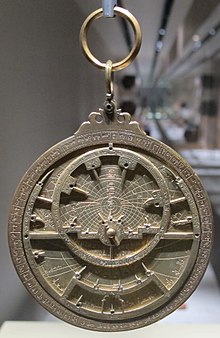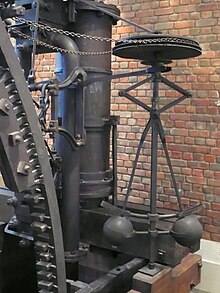Analogue computer
Analogue computers are mechanical or electronic devices which solve problems. some are used to control machines. They were once the only way a machine could be controlled, and are still used in cases where digital computers are not the best choice. The abacus, a digital device also sometimes called a computer, was used by Babylonians in c. 2500 BC.


The earliest known analogue computer in metal was the Antikythera device. However, this was certainly not the first in other forms. Some people think that mental inventions count as analogue computers, such as the invention of the zero (Ancient Egypt 1700 BC). But in that case almost every invention by mankind would count as an analogue computer, and that is not really how the term is used.
Certainly the invention of the slide rule was important for calculations. They were developed in the 17th century by William Oughtred, after John Napier's work on logarithms. Slide rules are definitely mechanical calculating machines.[1] They were the most commonly used tools in science and engineering before the 1960s/1970s.
For the industrial revolution the invention of James Watt's governor was critical, because it was a negative feedback control for large pumps and engines.[2] In fact most analogue computers work with continuous data rather that discrete or digital data. They are like abstract models of the real world. An analogue engine models the critical aspects of the real-world engine.
Since the middle 20th century some wristwatches have had a circular slide rule built in. They were mostly used in aviation. Such a calculator is considered too technical a device for most other watch wearers. The circular slide rule has not been emulated digitally in any notable applications.
Related pages
changeReferences
change- ↑ Roger R. Flynn 2002. Computer sciences. 1. Macmillan. p175: "The slide rule is an example of a mechanical analog computer..." ISBN 978-0-02-865567-3
- ↑ Maxwell, James Clerk 1868. On governors. Proceedings of the Royal Society of London. 16: 270–283.